Terror group behind Bali bombings remains active: Jihadist training camps
The terror group behind the Bali bombings, Jemaah Islamyiah (JI) is recruiting new members. This is what police have found and how they are spreading their tentacles again.
Crime in Focus
Don't miss out on the headlines from Crime in Focus. Followed categories will be added to My News.
The terrorist group behind the Bali bombings remains active and is expanding while fundraising for recruits to go to jihadist training camps in Syria.
Jemaah Islamyiah (JI) is expanding again and quietly building up a mass membership base.
The extremist group’s activities have come under the spotlight again after Indonesia’ anti-terror police strike force known as Desus 88 confiscated hundreds of charity donation boxes and disrupted a number “educational and humanitarian” charities.
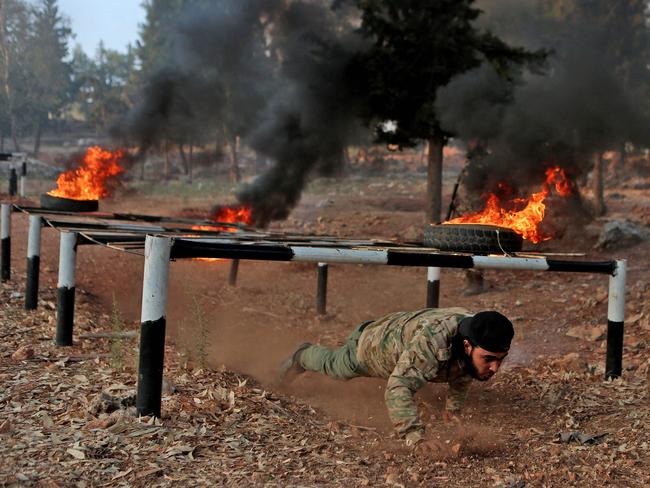
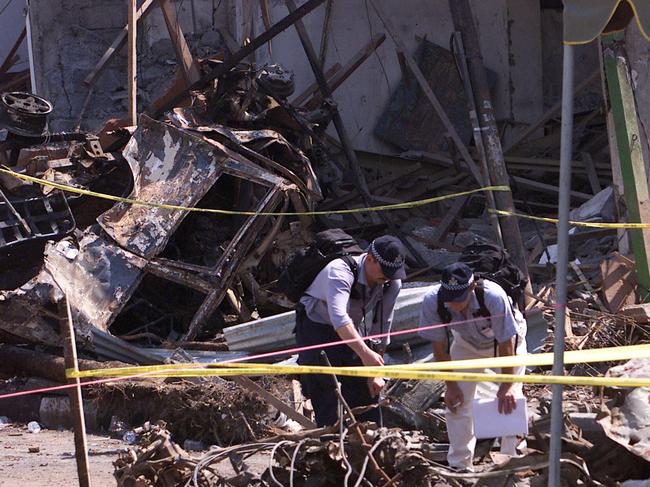
The police raids, which revealed JI had received a small fortune in donations, come after police earlier this year shot dead one of the charity heads and a JI-suspect known as Dr Sunardi.
The chilling revelations contained in a report, Extremist Charities and Terrorist Fund-raising in Indonesia, warn charities have evolved to serve as an important source of funding for violent extremist organisations in Indonesia like JI and other ISIS-linked extremist groups.
Institute for Policy Analysis of Conflict Security senior advisor Sidney Jones said the fundraising methods were not new but the massive scale of it was.
Listen to the AFP’s new podcast Operation ALLIANCE: 2002 Bali Bombings
Ms Jones said extremist organisations use a similar methods, identifying a humanitarian need; giving it a religious justification; raising funds as broadly as possible; claiming transparency by periodically publishing accounts; and then diverting funds for jihad and support to arrested members.”
The report showed JI had used the funds to organise meetings, start businesses, support prisoner families and hide fugitives as well pay expenses of sending members to jihadist training camps in Syria.
JI was behind the 2002 and 2005 Bali bombings as well as a string of other terrorist attacks including the 2004 attacks on the JW Marriott Hotel and the Australian Embassy in Jakarta.
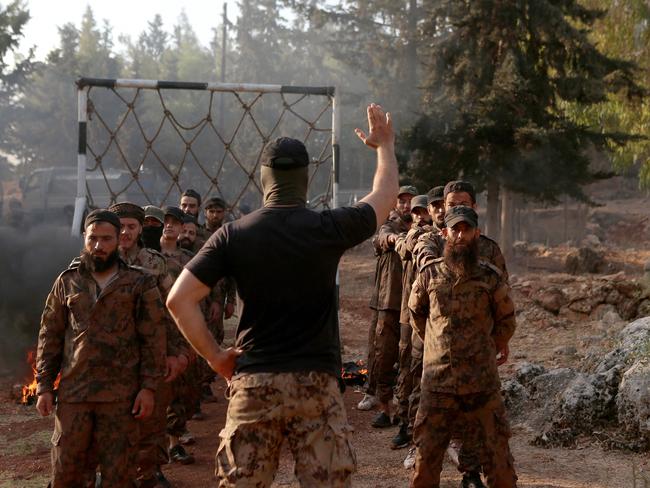
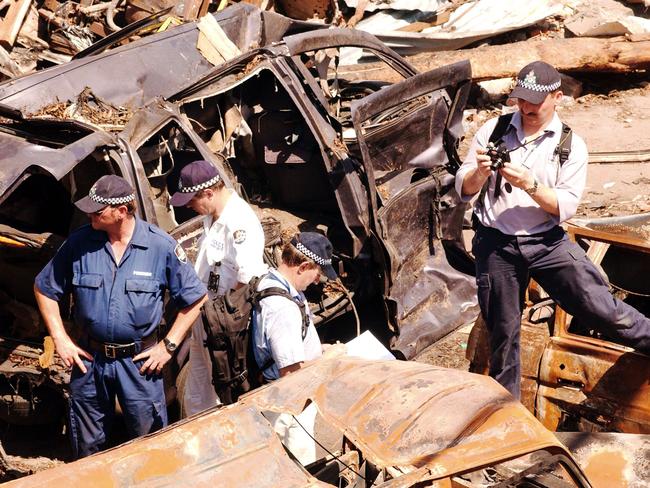
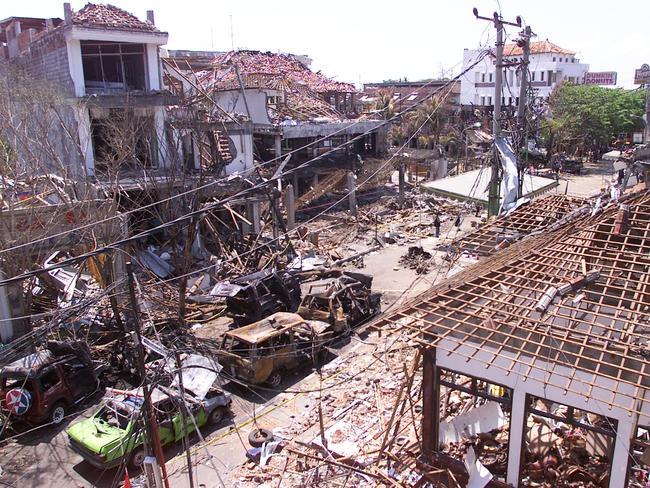
One of the former heads of JI, who spent a year in jail and now runs reradicalisation programs, Nasir Abbas, said the government and police must remain vigilant so similar attacks don’t happen again.
“Until now, we see that many invitations to do radicalism act, to against the government … still exist. We can still hear and read it anywhere. If we don’t take action to prevent this, it would be dangerous. Some day, the desire to do ‘something’ will appears,” Mr Abbas said.
But despite JI’s active fundraising and membership efforts experts such as Chair in Global Islamic Politics at Deakin University Professor Greg Barton said we are very unlikely to be surprised by a major attack around the time of the Bali bombing anniversary – but it not impossible.

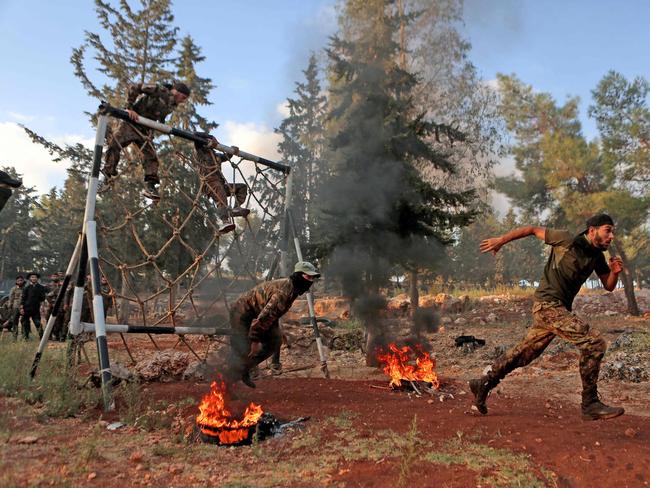
Professor Barton said JI is resilient but keeping “their heads down” but he believes the bigger threat may be from members aligned with ISIS.
“I don’t think any group has the will or the capacity to do another attack on the 20th anniversary,” Prof Barton said.
“JI doesn’t want to risk it … the caveat is that there may be younger more impatient elements.”
“But the real threat is a lone actor.”
Professor Rohan Gunaratna Professor of Security Studies at the S. Rajaratnam School of International Studies, Nanyang Technology University, Singapore, said Detachment 88 has been very effective neutralising threats and have arrested hundreds of people.
But he warned terror cells and networks still exist and governments can’t afford to be complacent.
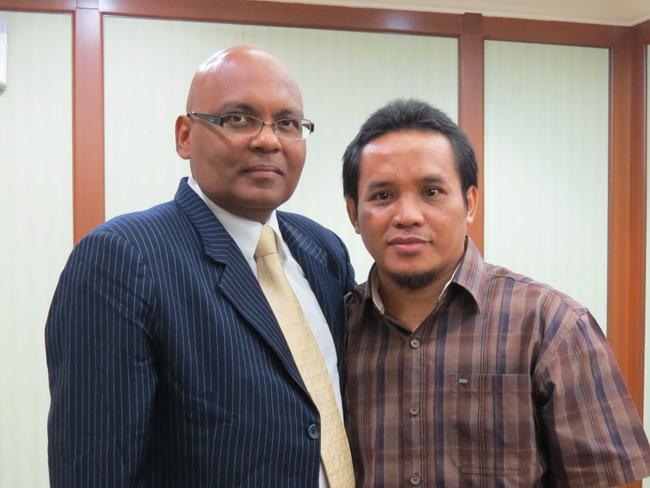
“Detachment 88 has been waging a relentless operation against JI, but there have been some setbacks – the return of the Taliban and ISIS in Afghanistan,” said Professor Gunaratna.
He said the threat has diminished but can be revived and governments should not become complacent.
“Canberra should ensure its continued co-operation with Jakarta because if terrorism grows in South East Asia it can affect Australia,” he said.
“It must not be forgotten there were 35 JI members in Australia with significant infrastructure Sydney, Melbourne and Perth.”
Originally published as Terror group behind Bali bombings remains active: Jihadist training camps



